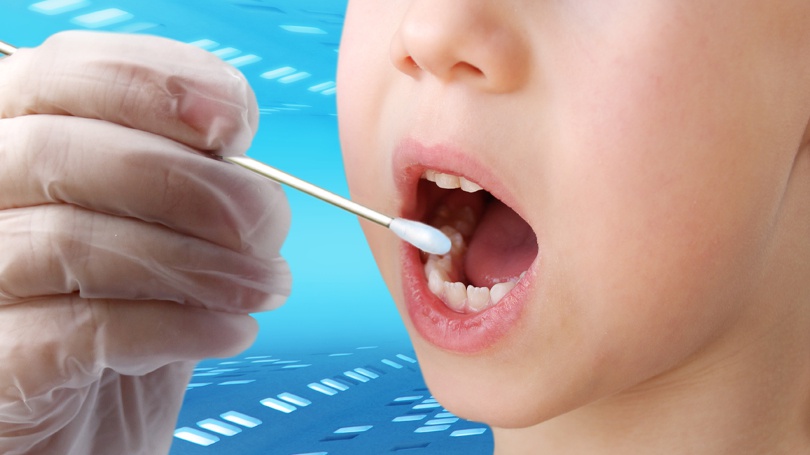How Saliva Works to Protect Your Oral Health

Saliva is a watery substance that people often take for granted. It can entertain kids, but it is not something many adults spend much time thinking about—unless they are dentists. Nevertheless, saliva is a vital fluid created in your mouth that serves a number of key roles: it starts the digestion process, aids your immune system by neutralizing microbes, and even protects your teeth and gums.
What Is Saliva?
Perhaps not surprisingly, saliva consists almost entirely of water—about 98 percent. It also contains antibacterial agents, electrolytes, enzymes, and mucus. Enzymes are necessary to begin breaking your food down, and the antibacterial compounds are what are able to destroy microbes in the mouth.
How Is Saliva Created?
Humans have six major salivary glands and hundreds of minor salivary glands located throughout the oral cavity. These glands secrete saliva into your mouth through tubes. Saliva production has a wide range of triggers, including the anticipation of food. Chewing is an intense trigger because it physically compresses the salivary glands rather than just provide a mental stimulus. Some foods trigger more saliva than others, such as acidic foods triggering more than sugary foods.
How Is Saliva Essential?
Your body is able to produce about 2 to 4 pints of saliva a day. Most of that production occurs in the afternoon, and your body makes as much as it does because it is so crucial to your well-being. Saliva:
- Prevents your mouth from getting dry
- Facilitates chewing, tasting, and swallowing
- Washes away food particles, bacteria, and acids
- Helps to maintain a neutral pH level in your mouth
- Contains calcium, phosphate and other minerals that strengthen your teeth
- Fights germs in order to avoid bad breath and illnesses
What Happens If You Don’t Get Enough Saliva?
When your body does not produce enough saliva, dry mouth occurs. Dry mouth—also known as xerostomia—may not seem like a serious condition, but persistent dry mouth can lead to a number of health complications. This includes oral bacteria thriving, which can give you bad breath, decrease your ability to taste and make you more prone to oral infections, gum disease, and tooth decay.
Dry mouth once in a while is generally not cause for concern. If, however, you experience dry mouth on a frequent or ongoing basis, you should discuss it with your dentist. Your dentist can determine the cause or, in some rare cases, refer you to a specialist that can. Often, xerostomia is a result of dehydration. Your dentist may recommend drinking more water, chewing sugar-free gum, and perhaps using an over-the-counter oral rinse for dry mouth. Dry mouth can also be caused by certain diseases, medications that you are taking, salivary duct blockages, and other issues with the salivary glands.
Can You Produce Too Much Saliva?
Your body may at times produce excess saliva, a condition known as hypersalivation. But this is usually little more than an inconvenience. Hypersalivation tends to be temporary and can be a response to acid reflux, medications, oral infections, pregnancy, and even spicy foods, especially if you are not used to such delectables. It can also occur because a salivary gland is overactive. There are cases where the hypersalivation is chronic and thus interferes with a person’s life. If this occurs or when hypersalivation coincides with bad breath, dehydration, chapped lips or difficulty speaking, consult your doctor.
Saliva Is Crucial to Your Health
Saliva is an essential aspect of digestion that not only eases chewing and starts the breaking down of carbohydrates but makes swallowing comfortable. It is vital to maintaining a balanced microbiome in the mouth, staves off oral infections, and protects and strengthens teeth. Saliva may be something most people take for granted, but it is quite amazing when you stop to think about it. So, stay hydrated, brush and floss twice a day every day and be sure to visit your dentist every six months.
Wet Your Whistle
Ensure that your mouth gets ample saliva by drinking plenty of water throughout your day. You can also chew sugar-free gum after meals or whenever you feel like it in order to keep the saliva flowing. You should also see Jeffrey D. Clark, DDS, on a regular basis to have your oral health assessed. Dry mouth on occasion may be perfectly normal, but if you experience it frequently, you should schedule an appointment right away with Dr. Clark at Scottsdale Cosmetic Dentistry Excellence by calling us at 480 585 1853.




